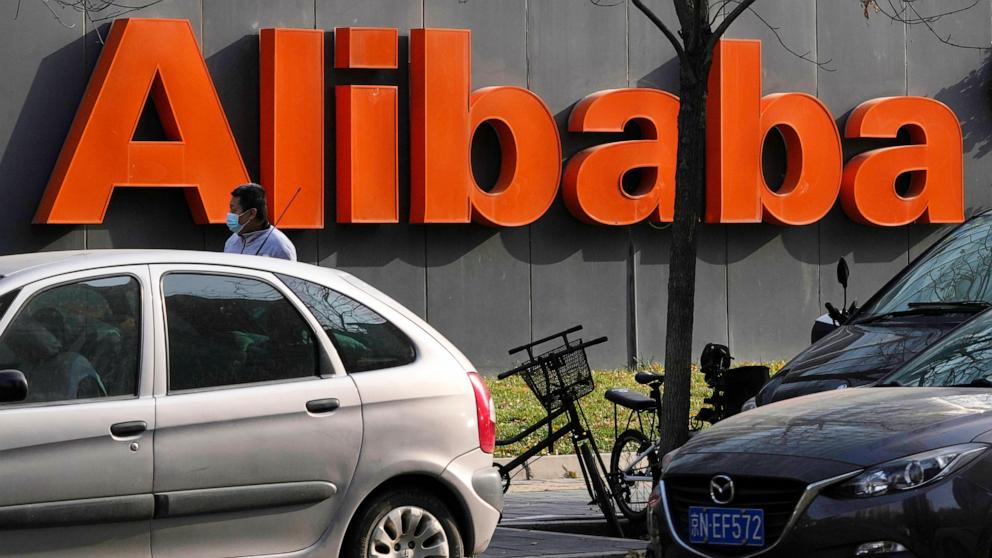Chinese e-commerce company Alibaba Group Holding Ltd. on Wednesday approved an additional $25 billion for its share buyback program after reporting lower-than-expected sales for the final quarter of 2023.
SINGAPORE — Chinese e-commerce company Alibaba Group Holding Ltd. on Wednesday approved an additional $25 billion for its share buyback program after reporting lower-than-expected sales for the final quarter of 2023.
The company's shares, traded in Hong Kong, fell 6.8% on Thursday. Alibaba's New York-listed stock fell 5.9% on Wednesday and has fallen nearly 26% over the past year.
Alibaba's revenue rose 5% to 260.3 billion yuan ($36.67 billion) in the quarter that ended in December, slightly below analysts' expectations. Net profit fell to 14.4 billion yuan ($2 billion), down 77% from a year earlier.
The Hangzhou, China-based company attributed the significant decline to a decline in the value of its equity investments and lower revenues. Alibaba has struggled to maintain growth and faces increasing competition in the e-commerce space from rivals such as Pinduoduo and ByteDance, which operates TikTok and Douyin.
Alibaba Chairman Joseph Tsai said on a call with analysts that the company no longer plans to list shares in its logistics unit Cainiao and grocery unit Freshippo in view of “difficult market conditions.”
The group earlier scrapped plans to spin off its cloud business, citing uncertainty over U.S. export restrictions on advanced chips used in artificial intelligence.
He said Alibaba is considering selling some of its non-core assets, including some retail businesses.
“Although we have a number of traditional brick-and-mortar retail businesses on our balance sheet, these are not our core focus,” Tsai said.
The Hangzhou-based company initially restructured its business in March, splitting it into six divisions that will ultimately raise equity capital and go public to increase shareholder value.
In a bid to accelerate growth, Alibaba in December appointed current CEO Eddie Wu as the new head of its e-commerce business, replacing longtime Alibaba executive Trudy Dai. This comes weeks after rival PDD, which operates Pinduoduo, surpassed Alibaba in market capitalization.
The company has struggled to recover following a regulatory crackdown on China's technology industry and a $2.8 billion fine that authorities deemed to have violated antitrust laws.


